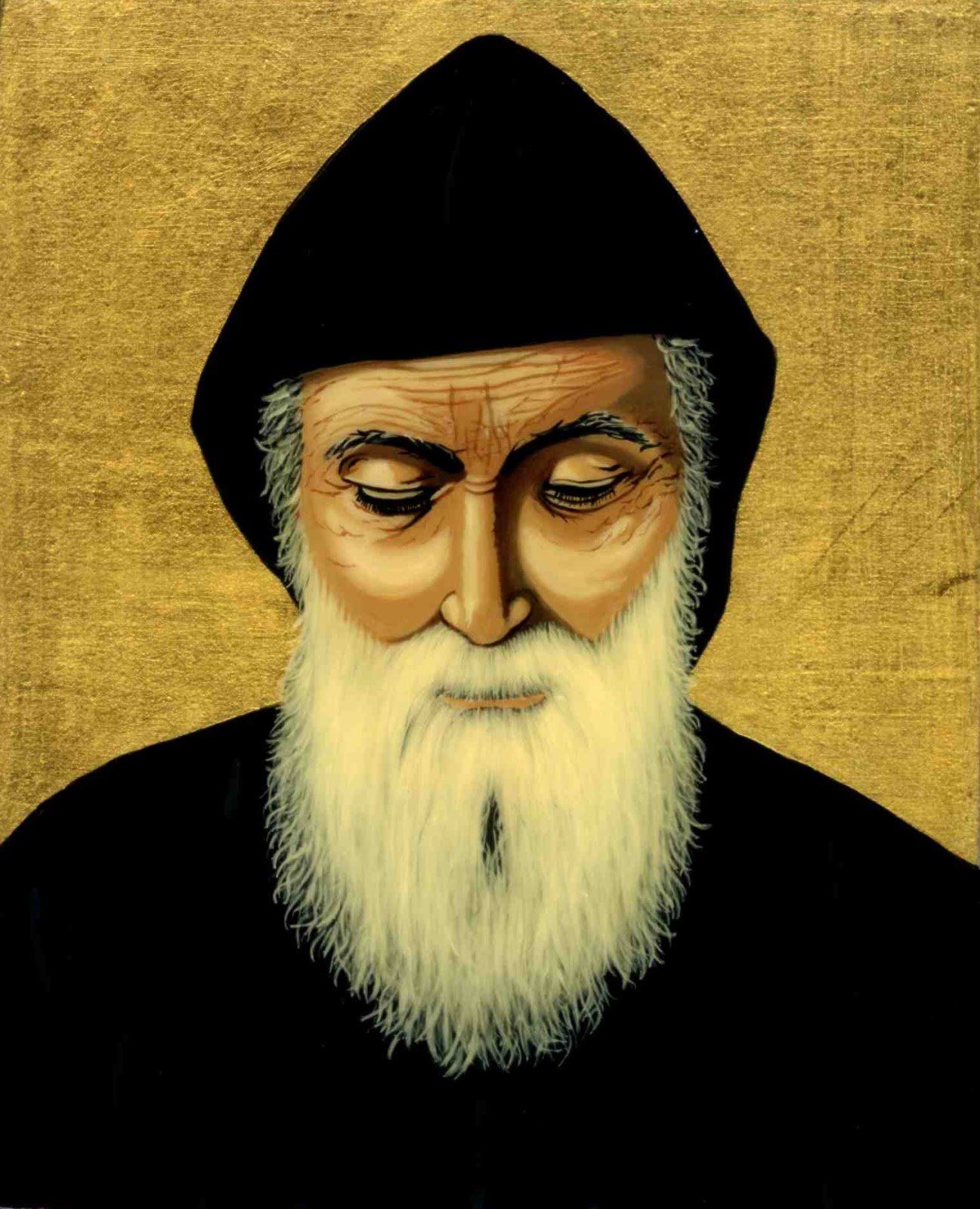Message of Abbot Paul - Saturday 24th July
Message from Fr Paul for Saturday, 24th July 2021
Today the Church celebrates a Lebanese saint, Charbel Maklouf, who was canonised by Pope St Paul VI in 1977. St Charbel, baptised Youssef Antoun, took the name of a 2nd century martyr of Antioch, when he became a monk. He was born to a poor family high up in the northern mountains of Lebanon in 1828 and died on Christmas Eve 1898. As a young boy, he looked after the family’s flock. To protect the sheep from the winter snow and the summer’s heat, he would take them to a cave, where he kept an icon of Our Lady. There he would spend his time in prayer. Two of his uncles were hermits and he felt called to follow their example and so was given permission by the family to become a Maronite monk. The Maronites are Eastern Rite Lebanese Catholics, the name derived from the Syrian St Maron. Charbel studied theology and was ordained a priest. His life was spent in prayerful contemplation and, even in life, he was considered by many to be a saint. You might wonder why we bother celebrating such a saint in the U.K.. First of all, to emphasise the importance and the power of prayer. The life of a hermit is not a wasted life. It is offered, like that of Jesus on the cross, for the salvation of the world. The other reason is this: the pandemic seems to have turned the British people in on themselves. We have become self-obsessed. It’s as though nowhere else exists (other than as a holiday destination) and no one else matters. We have forgotten or prefer to turn a blind eye to the plight of refugees, the victims of terrorism and war, hunger and diseases far worse than Covid-19. St Charbel might help us to remember and to pray for such countries as the Lebanon, Syria, Palestine, Iraq, Myanmar and so on. One of the greatest tragedies of the 21st century is the demise of ancient Christian communities from the very cradle of Christianity, the Near and Middle East. It breaks my heart.
Our Gospel passage from Matthew today, (Mt 13: 24-30), is the parable of the wheat and the darnel, an appropriate parable when we think of the failed states, like the Lebanon, that litter our world. “Jesus put another parable before the crowds: ‘The kingdom of heaven may be compared to a man who sowed good seed in his field. While everybody was asleep his enemy came, sowed darnel all among the wheat, and made off. When the new wheat sprouted and ripened, the darnel appeared as well. The owner’s servants went to him and said, “Sir, was it not good seed that you sowed in your field? If so, where does the darnel come from?” “Some enemy has done this” he answered. And the servants said, “Do you want us to go and weed it out?” But he said, “No, because when you weed out the darnel you might pull up the wheat with it. Let them both grow till the harvest; and at harvest time I shall say to the reapers: First collect the darnel and tie it in bundles to be burnt, then gather the wheat into my barn.”” We have been reading the parable of the sower, the seed and the soil. This parable is similar, but leads us onto the problem of evil. Where does it come from, what is its purpose and how will it be solved? How do we protect the wheat, while getting rid of the darnel, the weeds? What if the darnel overtakes and chokes the wheat? This parable gives us much food for thought. How can good and evil coexist in our hearts without the good being eternally destroyed? Ultimately, trust in God, in Divine Providence, in grace and mercy and in God ‘s omnipotence: he alone in the end will sort things out, Lord, help me to trust in you and not to try to solve those problems that you alone can put right. Help me not to interfere where your grace alone suffices. Amen.










